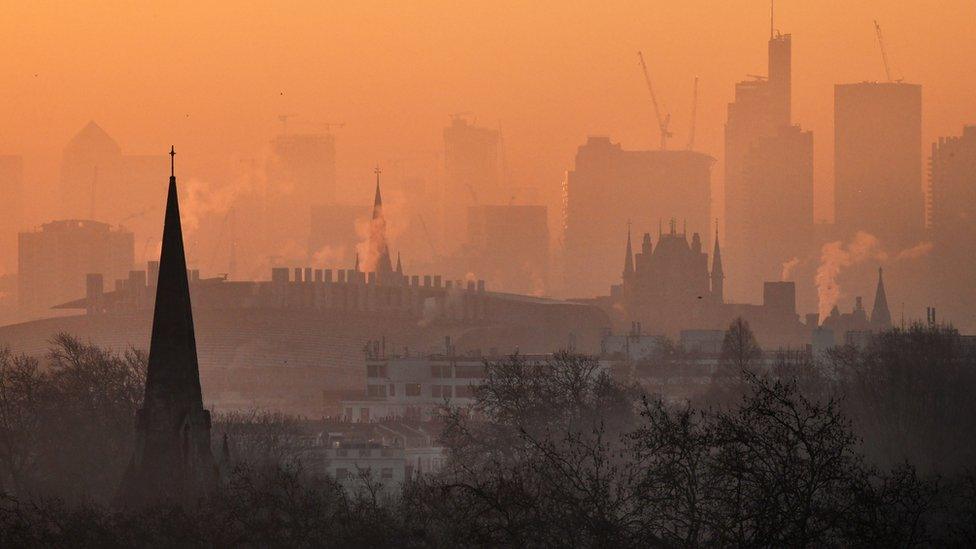Fall in air pollution in Long Eaton and Sandiacre sees monitoring lifted
- Published

A report said some of the fall was down to improvements to reduce congestion on the nearby M1
Air quality zones in part of Derbyshire, which have been monitored for pollution levels over the last 20 years, are to be revoked.
Two areas in Long Eaton and Sandiacre next to the M1 motorway had seen levels of nitrogen dioxide so high that there was concern for public health.
Government department Defra ordered regulars measurements to be taken.
Now levels have dropped enough, due to cleaner engines and less congestion, to allow the testing regime be lifted.

A study found one in 12 new cases of child asthma globally could be linked to exposure to nitrogen dioxide
A recent study found one in 12 new cases of child asthma globally could be linked to exposure to nitrogen dioxide and air pollution is a top five risk factor for disease and death worldwide, external, according to the World Health Organization.
Environment Minister Jo Churchill said air quality was "one of the biggest challenges we have on the health front".
Erewash Borough Council said it had decided to halt the testing after a detailed assessment confirmed nitrogen dioxide levels in both areas were now consistently and significantly below the national air quality objective of 40 micrograms in each cubic metre of air.
A report to the council said there had been a consistent fall in pollution over recent years, partly due to improvement measures carried out to the M1, particularly around Junction 25.
The report also said the possibility of pollution exceeding the objective level again is not considered likely.
Garry Hickton, lead member for environment, said: "This is welcome news, especially to those who live in the two zones. Regular monitoring and much hard work with our partners has ensured this outcome.
"I can also assure residents that monitoring in the two areas will continue to keep a check on pollution levels."
A total of 672 monitoring tubes were analysed each year as part the local programme, the council said.

Follow BBC East Midlands on Facebook, external, on Twitter, external, or on Instagram, external. Send your story ideas to eastmidsnews@bbc.co.uk, external.
- Published4 February 2022

- Published11 January 2022

- Published21 October 2021
